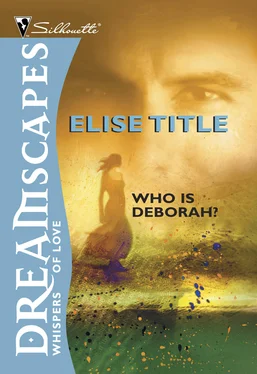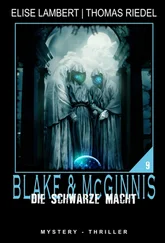When he stepped into the office after what felt like an eternity but was probably no more than ten minutes, I popped up like a puppet whose strings had been abruptly tugged hard.
Greg Eastman smiled. “Please. Sit down.”
Self-consciously, I followed his request. My boldness having deserted me altogether, I could manage little more than a quick glance at the private investigator. It was long enough, though, to know that he looked utterly unfamiliar to me. I felt incredibly disappointed as I stared down at my hands.
When I think back on that first meeting with Greg, it was his smile that I remember most. Sympathetic, charming, coaxing at turns. His grab bag of smiles didn’t quite put me at ease—that would have been impossible—but they did give me some comfort. I think I must have been expecting some hard-boiled shamus right out of a detective novel. Greg was nothing like that. He was clean-cut and attractive, with close-cropped sandy blond hair, regular features, and that engaging smile.
His next words broke the awkward and extended silence. “This must be quite a shock for you, Deborah.”
The name rolled so easily and naturally off his lips that my head jerked up.
“Am I…her?” My mouth was dry. The words came out like a harsh croak.
“After they made you, they threw away the mold.” Immediately after uttering the glib remark, he looked contrite. “Sorry. It’s just that I’m so incredibly relieved to see you. Dr. Royce has explained everything to me, Deborah. The assault, the injuries you suffered, the memory loss that resulted. But it’s going to be all right. Now, you can begin to really heal. I’ve come to take you home, Deborah.”
Home. I had promised myself I wouldn’t break down, but it was all too much. Home.
My sudden burst of tears filled Greg with alarm. He didn’t seem to know what to do, what to say. After a few attempts to calm me with words and pats on my shoulder, he finally just kept handing me tissues until I got my bearings again.
“I’m sorry,” I mumbled, horribly embarrassed.
“Don’t be. It’s probably the best thing for you.”
The best thing for me. No. The best thing for me would be to remember being Deborah.
“Did the headshrinker fill you in?” Greg asked. He gave me a quirky smile in response to my blank look. “Sorry. The psychiatrist.”
I repeated by rote what Dr. Royce had told me. “He said that you knew me from Sinclair. In the Catskill Mountains three hours north of here. You have a getaway cottage there. You’re a friend of Nicholas Steele’s. You’ve known him for five years. You’re tennis partners.”
I continued in a monotone. “Nicholas was married for two years and then two and a half months ago his wife, Deborah, disappeared. You saw my photo in the newspaper clipping and recognized me as Deborah Steele.” I might have been giving a canned speech at a conference. Nothing that I said had any foundation in reality for me. I felt like I was talking about someone else altogether. Deborah and Nicholas. They were both no more than phantom beings. I felt no connection to either of them.
Greg leaned forward, his elbows resting on his knees, palms capturing his square chin. He seemed unfazed by my mechanical presentation.
“You must have been mugged the first day you got to the city,” he said. “I checked out the area where they found you. At night, it’s a pretty desolate spot, but there are a few designers who have lofts in that neighborhood. You always had a thing for searching out new fashion designers. The best-dressed woman with the most original wardrobe in Sinclair. Not that Sinclair’s exactly a fashion mecca, but we do have our country-club set.” He winked, clearly expecting to garner a little laugh or a smile from me at the very least.
But my mouth was stuck in a tight line. To make matters worse, I became horribly self-conscious about the drab cotton print sundress that hung loosely on my narrow frame. My meager wardrobe, culled from the hospital’s thrift shop with a few hand-me-downs from a couple of nurses tossed in, was about as far from designer wear as one could get. I was certainly not the fashion plate of the New York General.
Greg leaned a little closer. I squirmed under his scrutiny, thinking he, too, was none too impressed with my attire, nor with my whole appearance. But how I looked and what I was wearing turned out not to be what was on his mind. “I know all this must be hard for you, but it’s hard for me, too, Deborah. You really don’t remember anything? Anything at all?”
Slowly, I shook my head. “This feels very unreal. I don’t even know whether to believe any of it. I keep thinking…you must have made a mistake.”
“No mistake,” he said confidently. And then he added, “Maybe this will help.” He withdrew a photo from a manila envelope and extended it toward me. As much as I wanted to look, I felt frozen to the spot. I couldn’t even reach out my hand to take the photo from him.
Eventually he laid it in my lap, facing me.
Still, it took several long moments for me to manage to lower my eyes to it.
It was an eight-by-ten glossy of a blond-haired woman in a bikini, smiling provocatively into the camera as she posed on the bow of a sailing sloop. What emerged most from the shot was the vibrancy of her coloring—the healthy, glowing golden sweep of hair, the tanned skin, the glamorous red lipstick, the vibrant blue eyes that sparkled with such youth and vitality.
Was this me? A me in happier times? Had my blue eyes ever shone like that? Had my blond hair ever looked so lustrous? Had I ever been so carefree? So curvy?
Incredible as it was, the similarities were undeniable. Not just that our eye color and hair shade matched, but it was there in the shape of the eyes. And in the mouth. Even our noses weren’t all that different. The jawlines…Well, they weren’t the same. Hers seemed to jut out more, giving her an air of defiance. It went with the seductive glint in her eyes. She seemed so sure of herself. And maybe a little full of herself, as well. That was the heart of the difference between us. I was certain that was what Dr. Royce saw, too, when he examined the photograph.
“You just need to put on a bit of weight, get out in the sun again, and—”
“Tell me about her,” I said, cutting him off.
He looked slightly startled. Then he smiled. “Well, she’s beautiful, vivacious, fun loving…”
But those were all qualities I could see myself in the photo. I wanted to know about the parts of her—of me?—that I couldn’t see.
My disappointment must have shown on my face, because he gave me a tender smile. “You always looked very sure of yourself, but you didn’t always feel that way. Not by half. We were good friends, Deborah. You…confided in me. You told me how important painting was for you. You talked about how lonely you were as a child.”
“My family…?”
A flicker in his hazel eyes told me it was a sad story. “Your father walked out on you when you were a small child. You always wished you could at least picture him in your mind, but you couldn’t. Your only memory of him was of a red plaid shirt he’d worn. You used to…tear up a little and say, ‘Can you imagine remembering nothing at all about your father but a dumb old shirt?”’
I hung on every word Greg spoke, struggling to make them mean something to me. I could feel for this sad child, but I couldn’t identify with her as being a part of myself.
“And my mother?”
He sighed. “She died when you were nine. You went to live with a maiden aunt in Omaha. I always used to tease you that no one really lived in Omaha.”
“And…and what would I say?”
“You’d say, ‘I didn’t live there, Greg. I existed there. Just barely, at that.”’
Читать дальше











